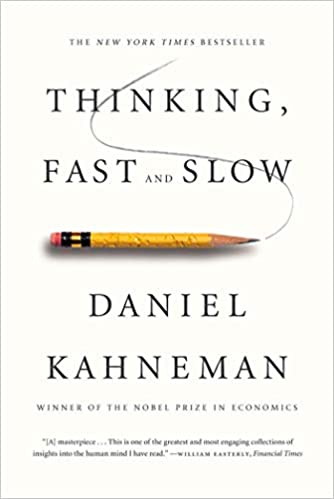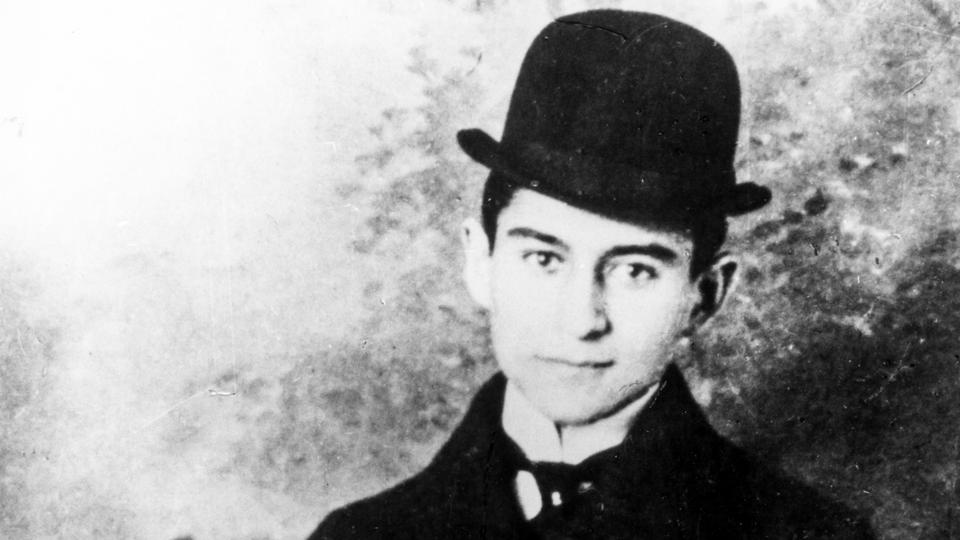
A THREAD on key ideas from the book "Thinking, Fast and Slow" by Daniel Kahneman:
1/
The test of learning psychology is whether your understanding of situations you encounter has changed, not whether you have learned a new fact.
1/
The test of learning psychology is whether your understanding of situations you encounter has changed, not whether you have learned a new fact.

2/
It is much easier to strive for perfection when you are never bored.
It is much easier to strive for perfection when you are never bored.
3/
We know that people can maintain an unshakable faith in any proposition, however absurd, when they are sustained by a community of like-minded believers.
We know that people can maintain an unshakable faith in any proposition, however absurd, when they are sustained by a community of like-minded believers.
4/
We are prone to blame decision makers for good decisions that worked out badly and to give them too little credit for successful moves that appear obvious only after the fact.
We are prone to blame decision makers for good decisions that worked out badly and to give them too little credit for successful moves that appear obvious only after the fact.
5/
The easiest way to increase happiness is to control your use of time. Can you find more time to do the things you enjoy doing?
The easiest way to increase happiness is to control your use of time. Can you find more time to do the things you enjoy doing?
6/
The illusion that we understand the past fosters overconfidence in our ability to predict the future.
The illusion that we understand the past fosters overconfidence in our ability to predict the future.
7/
Higher income is associated with a reduced ability to enjoy the small pleasures of life.
Higher income is associated with a reduced ability to enjoy the small pleasures of life.
8/
If you care about being thought credible and intelligent, do not use complex language where simpler language will do.
If you care about being thought credible and intelligent, do not use complex language where simpler language will do.
9/
Nothing in life is as important as you think it is, while you are thinking about it.
Nothing in life is as important as you think it is, while you are thinking about it.
10/
A reliable way to make people believe in falsehoods is frequent repetition, because familiarity is not easily distinguished from truth. Authoritarian institutions and marketers have always known this fact.
A reliable way to make people believe in falsehoods is frequent repetition, because familiarity is not easily distinguished from truth. Authoritarian institutions and marketers have always known this fact.
11/
To derive the most useful information from multiple sources of evidence, you should always try to make these sources independent of each other.
To derive the most useful information from multiple sources of evidence, you should always try to make these sources independent of each other.
12/
The world in our heads is not a precise replica of reality; our expectations about the frequency of events are distorted by the prevalence and emotional intensity of the messages to which we are exposed.
The world in our heads is not a precise replica of reality; our expectations about the frequency of events are distorted by the prevalence and emotional intensity of the messages to which we are exposed.
13/
Once you have accepted a theory & used it as a tool in your thinking, it is extraordinarily difficult to notice its flaws. If you come upon an observation that does not seem to fit the model, you assume that there must be a good explanation that you are somehow missing.
Once you have accepted a theory & used it as a tool in your thinking, it is extraordinarily difficult to notice its flaws. If you come upon an observation that does not seem to fit the model, you assume that there must be a good explanation that you are somehow missing.
14/
A general “law of least effort” applies to cognitive as well as physical exertion. The law asserts that if there are several ways of achieving the same goal, people will eventually gravitate to the least demanding course of action.
A general “law of least effort” applies to cognitive as well as physical exertion. The law asserts that if there are several ways of achieving the same goal, people will eventually gravitate to the least demanding course of action.
15/
Odd as it may seem, I am my remembering self, and the experiencing self, who does my living, is like a stranger to me.
Odd as it may seem, I am my remembering self, and the experiencing self, who does my living, is like a stranger to me.
16/
Our comforting conviction that the world makes sense rests on a secure foundation: our almost unlimited ability to ignore our ignorance.
Our comforting conviction that the world makes sense rests on a secure foundation: our almost unlimited ability to ignore our ignorance.
17/
You are more likely to learn something by finding surprises in your own behavior than by hearing surprising facts about people in general.
You are more likely to learn something by finding surprises in your own behavior than by hearing surprising facts about people in general.
18/
It is the consistency of the information that matters for a good story, not its completeness. Indeed, you will often find that knowing little makes it easier to fit everything you know into a coherent pattern.
It is the consistency of the information that matters for a good story, not its completeness. Indeed, you will often find that knowing little makes it easier to fit everything you know into a coherent pattern.
19/
The nervous system consumes more glucose than most other parts of the body, and effortful mental activity appears to be especially expensive in the currency of glucose.
The nervous system consumes more glucose than most other parts of the body, and effortful mental activity appears to be especially expensive in the currency of glucose.
20/
I have yet to meet a successful scientist who lacks the ability to exaggerate the importance of what he or she is doing, and I believe that someone who lacks a delusional sense of significance will wilt in the face of repeated experiences of multiple small failures...
I have yet to meet a successful scientist who lacks the ability to exaggerate the importance of what he or she is doing, and I believe that someone who lacks a delusional sense of significance will wilt in the face of repeated experiences of multiple small failures...
...and rare successes, the fate of most researchers.
21/
A happy mood loosens the control of System 2 over performance: when in a good mood, people become more intuitive and more creative but also less vigilant and more prone to logical errors.
A happy mood loosens the control of System 2 over performance: when in a good mood, people become more intuitive and more creative but also less vigilant and more prone to logical errors.
• • •
Missing some Tweet in this thread? You can try to
force a refresh








